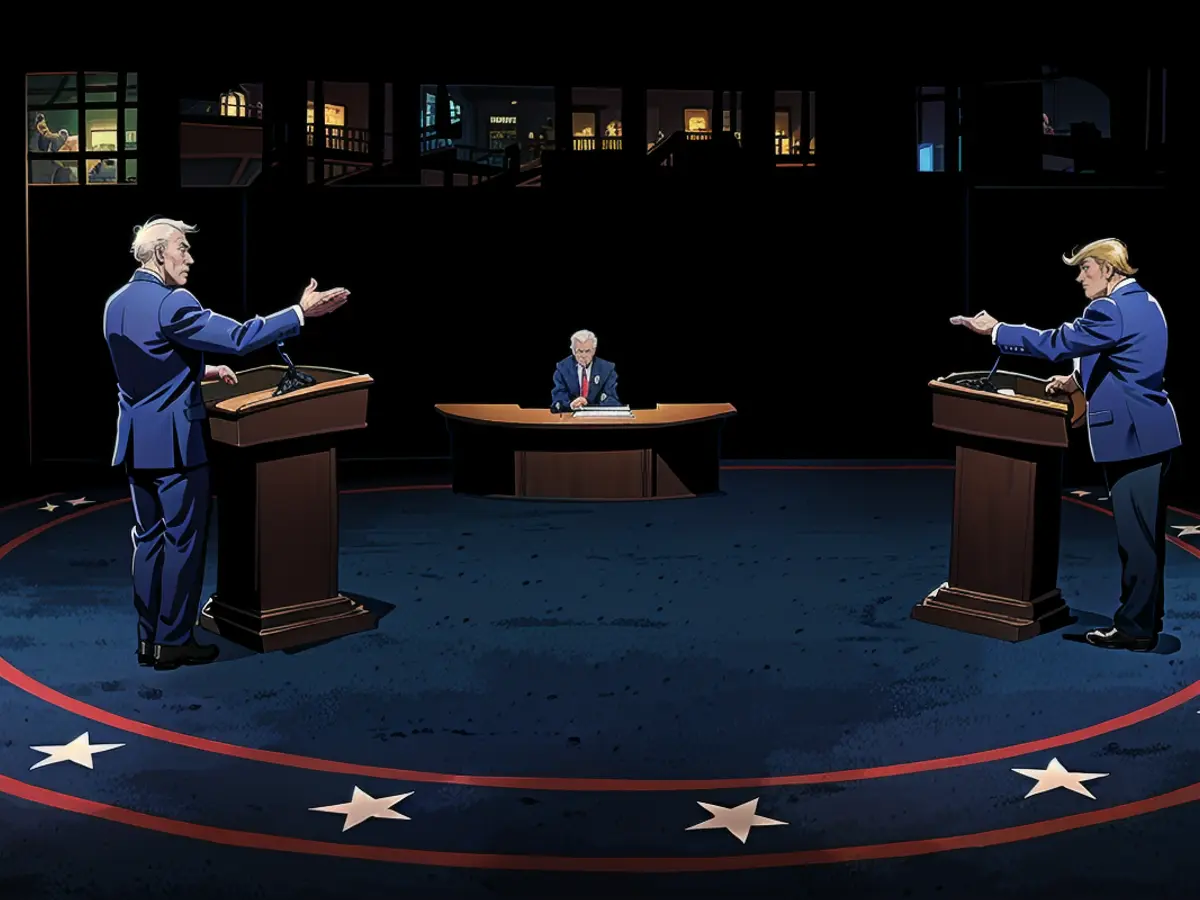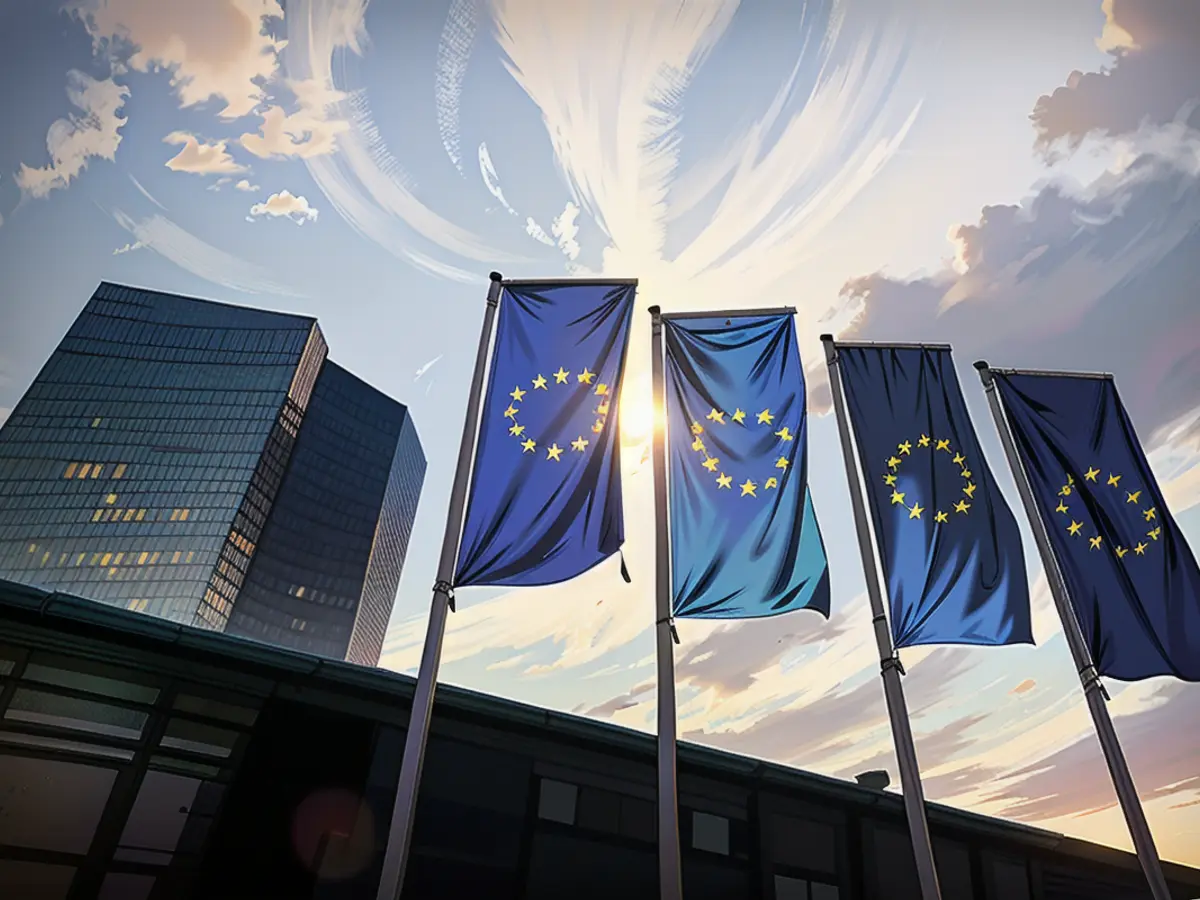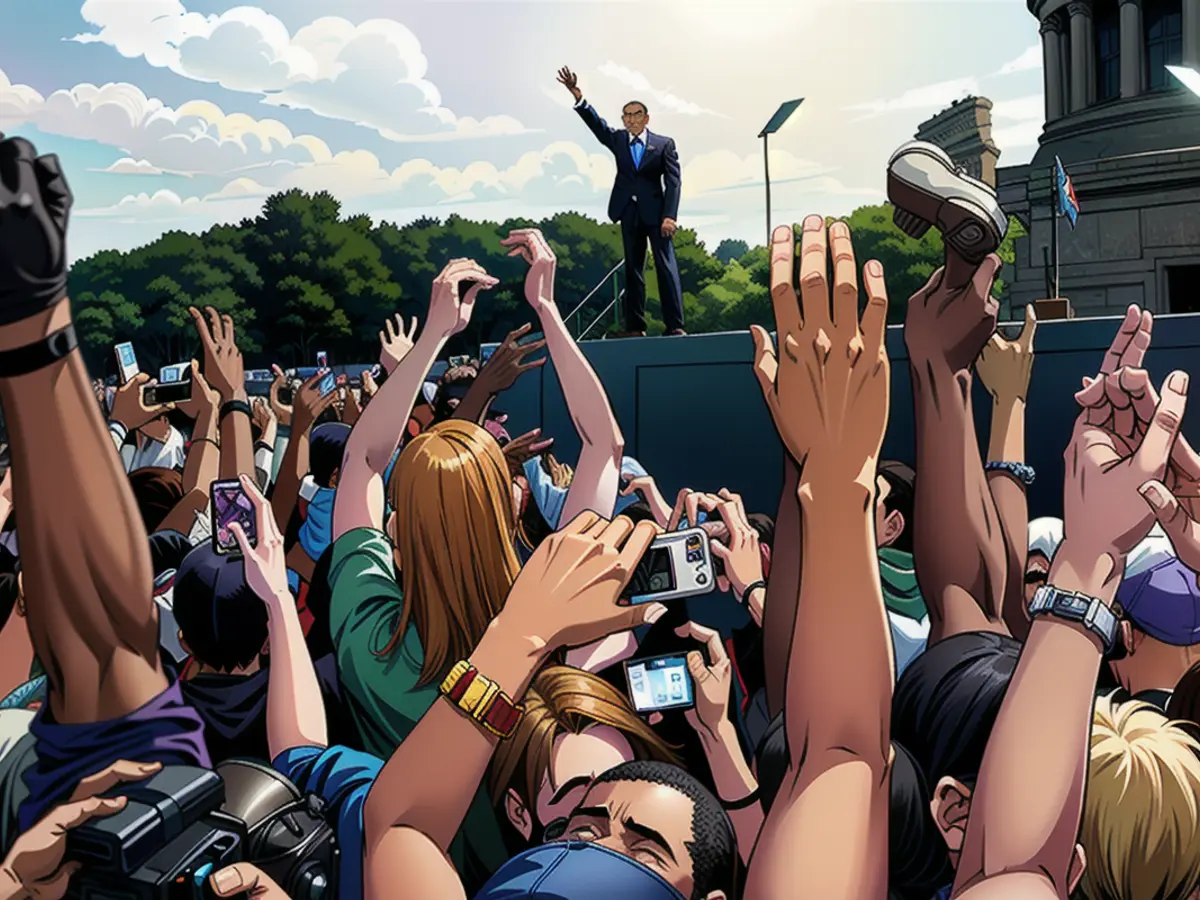Perspective: German workplaces and soccer fields are devising "thunderstorm" strategies for Trump
The focus of our chat shifts to education and vacations, as I inquire about the opinions of my fellow soccer parents concerning the US elections while discussing my upcoming article for CNN Opinion.
Observing 2024 from a Distance
Monthly leading up to the US election, a CNN Opinion author in a distinct location investigates how individuals perceive America and why the election's outcome affects them. Read about it here: 'The view from Taiwan: I'd rather raise my child here than America.'
Jörg, who has been associated with our team for a long time and whose son Miguel is our son's coach, expresses his concern. Jörg, who works shifts for a local train company, enjoys watching late-night political discussions that frequently discuss the concept of a second Donald Trump presidency.
"I'm very worried," Jörg says. "Trump appears to be the leader of a cult. His devotees would follow him blindly. That's frightening." If Trump is elected, he predicts that American soldiers will be withdrawn from Europe and assistance to Ukraine will stop.
Eda, a Berlin middle school teacher who teaches politics, and Piero, an Italian urban researcher and professor who has been living in Berlin for years, share Jörg's concerns. Both of them pay close attention to US news, like Jörg.

Piero finds many aspects of this election confusing. He's shocked by the Biden-Trump rematch. "The Democrats failed to develop a successor when they still had the chance," he claims.
While this soccer field conversation provides insight into Germans' perspective on the US elections, it is not a frequent topic of conversation outside Berlin's politics bubble. With other concerns looming, such as the conflict in Gaza, the ongoing Ukraine issue, struggling to find a plumber due to labor shortages, and navigating through post-inflationary financial challenges, American politics is a topic on the back of many minds.
I often find that people monitor the election's path, comparing the situation to a distant thunderstorm that could or couldn't affect them.
US Elections - A European Threat?
The US elections have always been widely discussed in Germany. However, this year, there's a heightened sense of apprehension. Due to Russia's wholesale invasion of Ukraine since February 2022, Europe's reliance on the United States for security is front and centre in political discourse.

Germany and other European nations have increased military investments, built up their defense industry, and have provided billions in military and financial aid to Ukraine. Nevertheless, without US support, Ukraine's predicament, and subsequently Europe's, would be dire. The US is both a security saviour and a potential peril. And this feeling is shared by many.
At a Trump rally in the recent past, the former president bragged about telling a European leader to "encourage" Russia "to do whatever the hell they want" to any NATO member country that didn't fulfill their "bills." In other words, if they didn't meet their NATO spending promises.
Despite this reality, German Chancellor Olaf Scholz dismisses the significance of the US elections to Germany and Europe at a late-April press conference. He claims he is "fairly confident" that NATO would remain unaltered "in the next few decades."
His false composure is likely to ease the worries of ordinary citizens like my soccer moms and dads. It is also unlikely that the Chancellor's exaggerated nonchalance is an accurate reflection of his true thoughts.
When I discuss the issue with officials within the German administration, they reveal a different mood. They're actively preparing for both potential outcomes.

Preparing for a Trump-induced Storm
It's a Monday evening, and I'm in the office of a senior government official in a vast maze of identical corridors in a large Berlin government building. He agrees to discuss Germany's readiness for the US elections' potential outcomes without disclosing his identity to discuss sensitive matters.
Firstly, he says, attempts are being made to establish connections with individuals close to Trump, Republican senators, representatives, and governors. In September of last year, Germany's foreign minister Annalena Baerbock embarked on a lengthy tour, visiting destinations like Texas, where she convened with Governor Greg Abbott. Many other German officials are also touring the US, often in the country's southern and central regions, to build rapport.
Second, he highlights that the administration is working to raise awareness in Germany's business community that things could get rocky, especially if Trump wins. People expect Trump might impose new tariffs on European goods and might try to persuade European companies to cooperate more closely with the US in controlling China. However, the official predicts it can get tougher even under Biden. He also foresees a volatile Congress, regardless of the election outcome.
Third, Germany is inquiring about potential outcomes with its close European allies, such as Poland and France regarding Trump's re-election, says the official. "If Donald Trump is reelected, we have to try to remain united in the European Union, with Poland, France, and Germany leading the way," he says. If Europe maintains unity, it might have a better chance of extracting concessions from Trump than currently anticipated. After all, the US relies on the European market too.

Though this perspective is based on the premise that Trump, if reelected, will act rationally, the official wonders: "What if this assumption is wrong?" What if Trump aims to withdraw the US from NATO or creates a "dormant NATO," a NATO present only in name?
Even if Biden re-wins or Trump is proven to be more rational than expected, the damage to the reputation of the US in Germany has already occurred due to the past decade's democratic backsliding.
The "American Dream" is Transforming
Back to the soccer pitch, Eda and I talk about sports. Eda, wearing a Dallas Mavericks shirt, expresses her enthusiasm for the NBA. She has never been to the US but intends to visit if the Mavericks ever make it to the finals, costs be damned.
Eda and I, both born on the cusp of Gen X and Millennials, have a deep fascination with American culture. Despite the turbulence in US-German political relations, we agree that America has typically been a captivating concept throughout our lifetime.

We became politically aware under George H. Bush's presidency in the first Gulf War. Remember the excitement in 2008 when America elected Barack Obama, the first black president, who was crowned a star in Germany? People fondly recall his visit to Berlin, causing widespread traffic chaos because 200,000 flocked to the Victory Column to witness him.
US-German ties have never been limited to trade, military cooperation, or the nuclear umbrella. America's soft power, its cultural-political allure, has drawn generations of Germans into viewing America as a natural ally.
Europe's Far Right Observes America
In the past decade, the perception of America among younger German generations has changed. For many, America has morphed into a sinister force that reinforces anti-democratic movements.
On a Friday afternoon, Schahina Gambir, a Green Party member at the Bundestag, discusses the election's impact on European security and society with me by phone. Born in Kabul in 1991 and raised in a northern German rural area, Gambir specializes in foreign affairs and human rights issues.
Gambir states the US election will surely affect Europe's security. However, it will also affect German society. "Debates in the US reverberate here, possibly swaying Europe towards the right," she claims, explaining that right-wing networks in Europe have links to right-wing networks in the US. US conspiracy theories spread in Germany, affecting, for instance, the anti-vaxxer movement.
As a young woman, Gambir recalls the Obama era. Still, many today's German teenagers and college students view the US only as a Trump-centric nation amid a downward spiral. Another Trump presidency would not only jeopardize Germany's security but also portray this view of the US for another four years.
The day after our discussion, our kids triumphantly win their game. Eda and her son leave with a sense of satisfaction. Later, Eda texts me: "The Dallas Mavericks lost." She adds a crying emoji.
Read also:
- This will change in December
- Dikes withstand water masses so far - Scholz holds out the prospect of help
- Fireworks and parties ring in 2024 - turn of the year overshadowed by conflicts
- Attacks on ships in the Red Sea: shipping companies avoid important trade route
Source: edition.cnn.com







